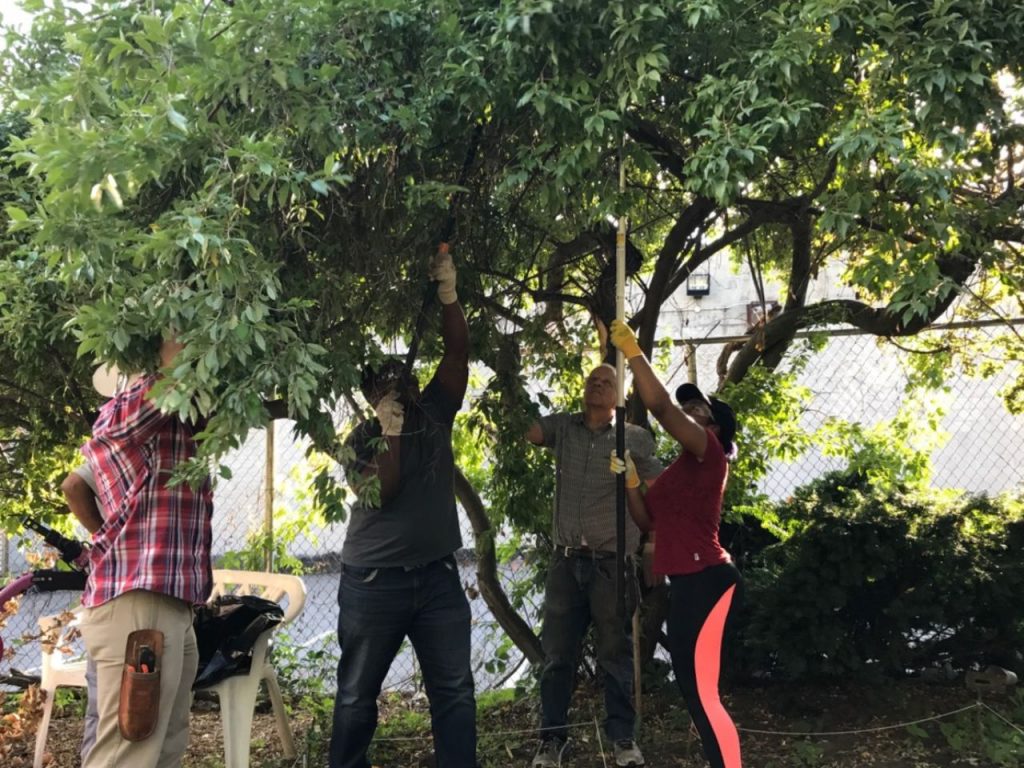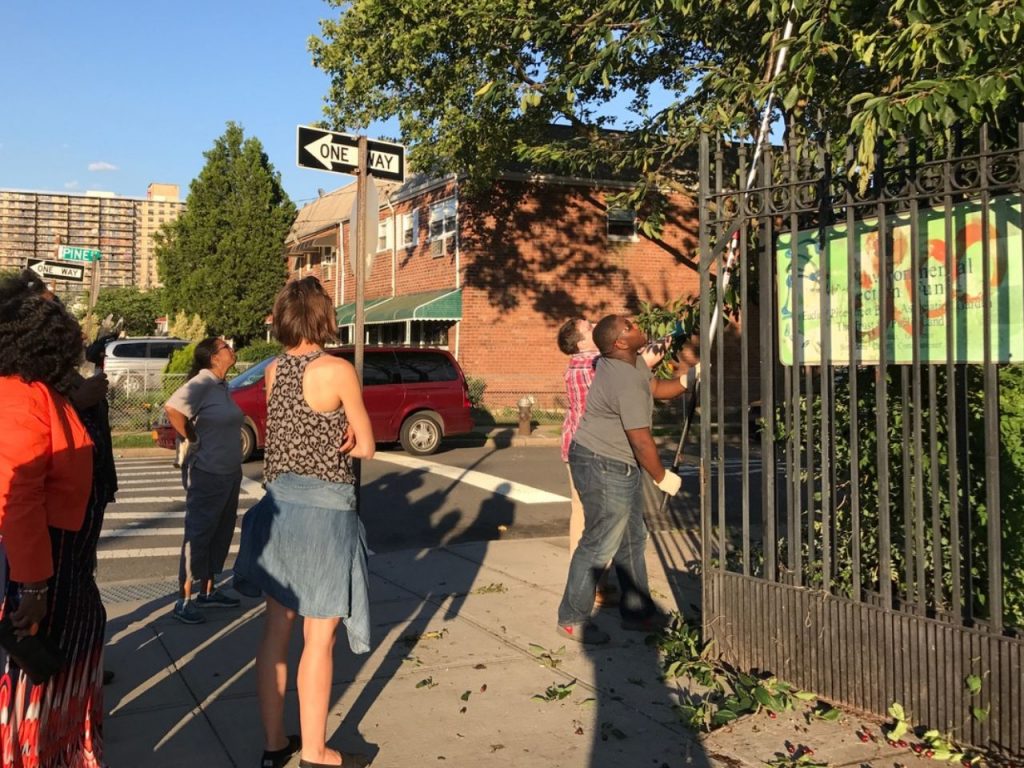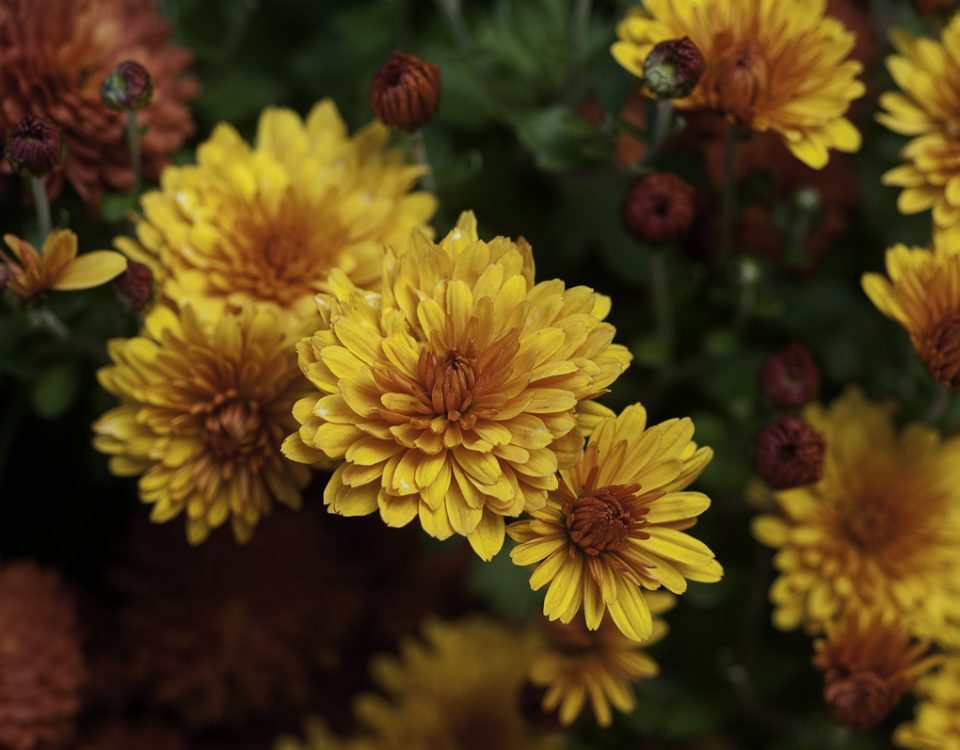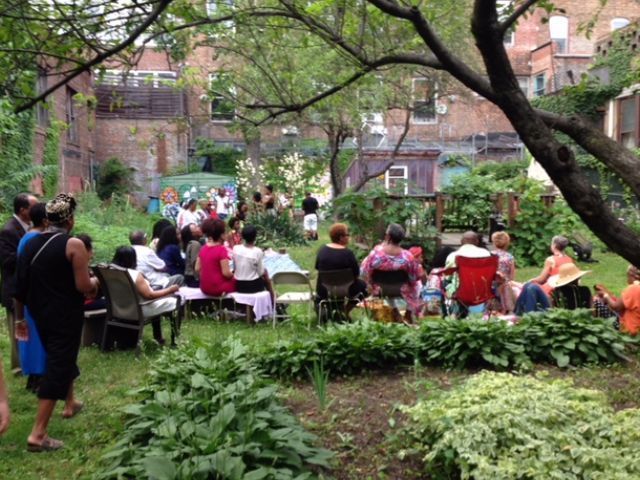Brooklyn Queens Land Trust Receives New York State Department of Environmental Conservation Urban and Community Forestry Grant
FOR IMMEDIATE RELEASE
Contact:
Steven Thomson, President, Board of Directors
[email protected]
Domica Roberts, Program Manager
[email protected]
Brooklyn Queens Land Trust Receives New York State
Department of Environmental Conservation Urban and Community Forestry Grant
Funding will facilitate critical tree care in local community gardens

New York, NY (July 30, 2021) — The Brooklyn Queens Land Trust, a grassroots non-profit that owns and supports ongoing stewardship of community gardens across Brooklyn and Queens, has been selected as a recipient of an Urban and Community Forestry Grant from the New York State Department of Environmental Conservation (DEC).
The $30,940 Tree Maintenance Grant will enable BQLT to hire professional arborists to carry out necessary tree pruning and removal across numerous BQLT gardens. In addition, BQLT will partner with Trees New York to offer a special Citizen Pruner course to BQLT garden volunteers, sponsor several fruit tree-pruning workshops, and host a 2022 Arbor Day event to educate the public and generate interest in the important work of caring for our community’s trees.
BQLT is excited to announce that this grant will also enable us to establish a Community Tree Board made up of volunteers interested in educating the public about the benefits of community trees.
This grant will have immediate effects on many of the 240 trees located across our BQLT gardens, as well as long-term effects resulting from pruning education and the work of the Community Tree Board.
“We are extremely grateful to receive this grant to provide much needed and much appreciated tree maintenance in several of our gardens,” said Domica Roberts, BQLT Program Manager. “The preservation of open green space not only includes the protection of the land itself, but also the biodiversity sustained through the different species of trees that will be cared for using these funds.”
“We are grateful to the Department of Environmental Conservation for their investment in environmental justice in the neighborhoods that are home to Brooklyn Queens Land Trust’s community gardens,” said Steven Thomson, President of the BQLT Board of Directors. “The trees that this programming sustains will improve air quality and provide shade for New Yorkers facing a changing climate.”

“Trees are vital to our community life, public health, and our environment,” said Lieutenant Governor Kathy Hochul. “New York State is proud to celebrate Arbor Day by awarding grants to 26 outstanding projects in communities across the state to inventory, plant, and maintain public trees. These innovative projects exemplify New York State’s commitment to protecting and enhancing our state’s natural resources, while also beautifying communities and enhancing quality of life for a greener future.”
“Each year, Arbor Day reminds us of the importance of trees and their profound impact on our everyday lives,” said Commissioner Seggos. “Healthy community forests provide a host of environmental, economic, and social benefits, including wildlife habitat, watershed protection, flood reduction, increased property values, and improved public health. Investing in the health of New York’s communities through the State’s Environmental Protection Fund is providing crucial assistance to help our state’s vital forests to thrive.”
About Brooklyn Queens Land Trust
BQLT was incorporated as a non-profit in 2004. Today, we own 35 community gardens and lease one additional garden in the NYC boroughs of Brooklyn and Queens. BQLT gardens cannot be sold or developed, and are permanently saved as open spaces. Our organizational mission is three-fold: 1) to establish a community of gardeners in the boroughs we serve; 2) to preserve, support, manage, and enhance community gardens for the benefit of the general public; and 3) to act as a steward of the open space properties we own.
To learn more, and to support BQLT’s work, visit bqlt.org.


